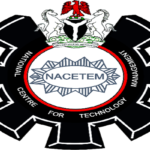Experts in the technology and innovation sector are calling for a regulatory framework that would serve as a compass for maximum utilization of Artificial Intelligence to improve service delivery in the public sector in Nigeria.
Speaking virtually at a Policy Dialogue on Artificial Intelligence in the Public Sector in Abuja on Monday, the Vice Chancellor of Summit University, Prof. Abiodun Albinu in a paper presentation explained that AI if properly harnessed would boost service delivery in the public sector.
He said Artificial Intelligence is the transformation that allows the transfer of human intelligence into machines for quicker results.
Albinu stated further that AI entails making a computer undertake the functions that were performed by human beings for better turnout.
The VC said the automation of processes in the public sector in the country will certainly improve efficiency in service delivery but noted that there is need for regulation.
On his part, the Director General of National Space Research and Development Agency (NASRDA), Dr Halilu Ahmad Shaba stated that Artificial Intelligence (AI) has become a game-changer in the public sector, revolutionizing the way government and public institutions operate.
“Through its advanced algorithms and data analysis capabilities, AI is enhancing decision-making, streamlining processes, and improving the overall delivery of public services. Its potential to drive efficiency, effectiveness, and innovation is transforming the public sector landscape, ultimately benefiting citizens and society as a whole.
One of the key advantages of AI in the public sector is its ability to analyze vast amounts of data quickly and accurately. This will significantly improve the quality of public services, such as healthcare, transportation, and education. AI-powered systems can detect patterns, identify trends, and make predictions, allowing policymakers to make informed decisions and allocate resources more effectively” he said.
Represented by John Nwagwu, Shaba noted that AI has proven to be instrumental in addressing societal challenges, such as public safety and environmental sustainability. Smart surveillance systems powered by AI algorithms can help detect and prevent crimes, while AI-driven models can analyze environmental data to support decision-making in mitigating climate change and promoting sustainable development.
“As we celebrate the positive impact of AI in the public sector, it is important to acknowledge the importance of responsible and ethical AI implementation. Safeguards must be in place to ensure transparency, fairness, and accountability in the use of AI technologies, prioritizing the well-being and privacy of citizens” he stated.
The host of the Policy Dialogue, the Director General of National Center for Technology Management (NACETEM), Dr Olusola Odusanya said “We have gathered together an array of personalities who are experts in the field of AI, to dialogue on the first steps that Nigeria will take in developing a framework for the use of AI in national development.
While this framework is being developed, we will now begin to take the next steps on regulation that will eventually lead to a revolution of an aggregation of those extant rules that guide the use of technology such as this.”
He noted that NACETEM has taken it upon itself to make sure that the country set the pace for AI policy dialogue.
READ ALSO FROM NIGERIAN TRIBUNE






